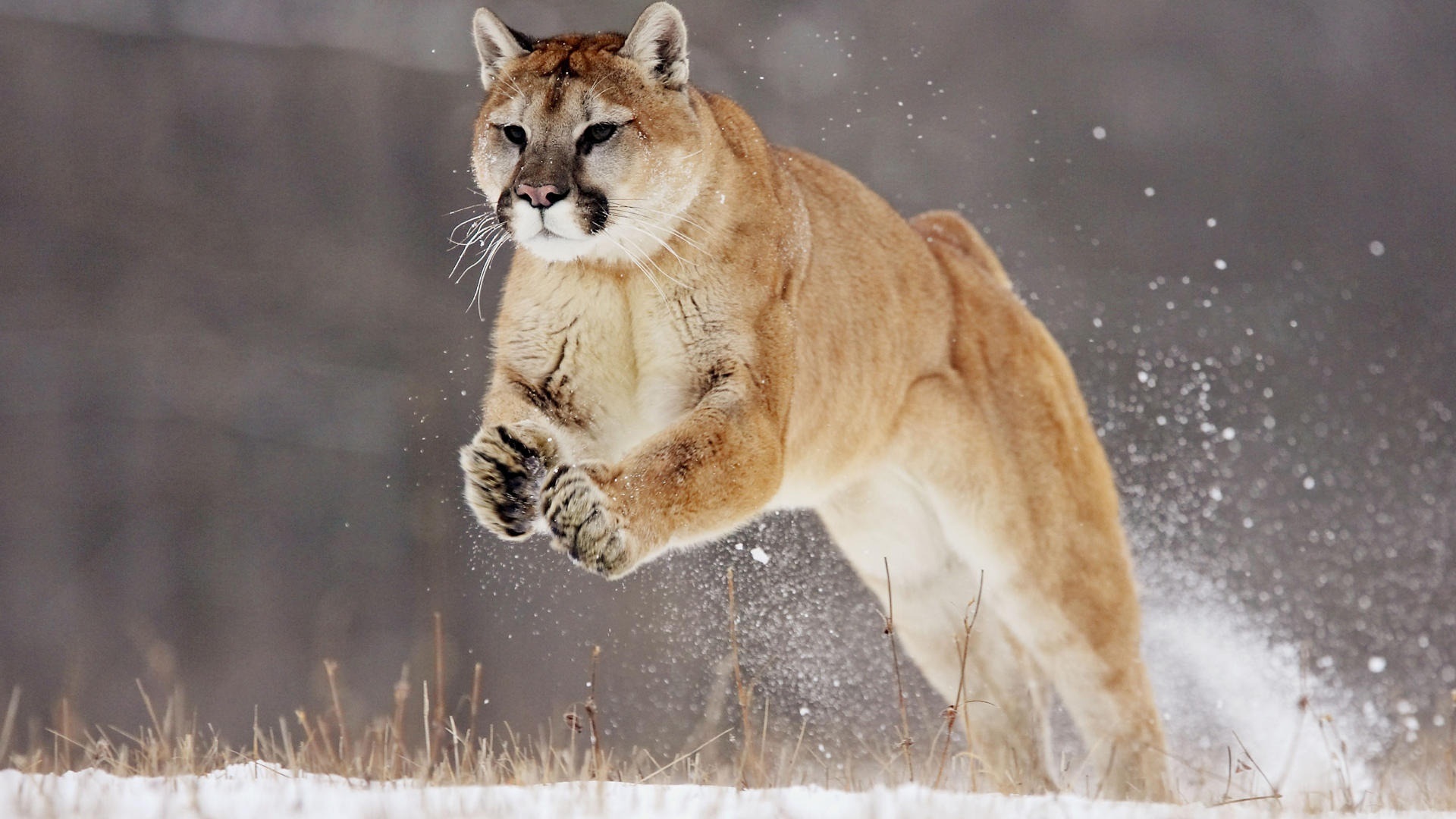When you hear the word "cougars," your mind might immediately jump to a few different ideas. Are we talking about the majestic wild cats roaming the mountains? Or maybe the colloquial term for older women dating younger men? Well, buckle up, because today we're diving deep into the world of cougars, exploring both the wildlife side and the cultural phenomenon. This isn't just any ordinary guide; it's your go-to resource for everything cougar-related!
Let's face it, cougars have a certain allure that draws us in, whether we're talking about their stealthy hunting skills or the societal buzz around relationships. They're fascinating creatures in every sense of the word, and understanding them better can give us some pretty cool insights. So, why not take this opportunity to learn something new and exciting?
By the end of this article, you'll have a clearer picture of what cougars truly represent, from their natural habitats and behaviors to the cultural implications of the term. Plus, we'll sprinkle in some fun facts and expert opinions to keep things interesting. Ready? Let's get started!
Read also:Carolina Sweets A Sweet Adventure In The Heart Of The Carolinas
Table of Contents
- What Are Cougars?
- Cougar Biography
- Where Do Cougars Live?
- What Do Cougars Eat?
- Cougar Behavior
- Cougar Conservation Efforts
- Cougars in Popular Culture
- Common Myths About Cougars
- Staying Safe Around Cougars
- Fun Facts About Cougars
What Are Cougars?
Cougars, also known as mountain lions or pumas, are large predators native to the Americas. These magnificent creatures are part of the Felidae family, which includes other big cats like lions and tigers. But cougars have a unique charm that sets them apart from their feline cousins. They're stealthy, adaptable, and incredibly powerful hunters.
Key Characteristics of Cougars
- They can weigh anywhere from 60 to 220 pounds depending on their gender and location.
- Cougars have tawny-colored fur that helps them blend into their surroundings.
- They're known for their incredible jumping ability, capable of leaping up to 18 feet vertically.
But here's the kicker—cougars aren't just about raw power. They're also incredibly intelligent animals that rely on strategy and patience to catch their prey. It's this combination of strength and smarts that makes them such fascinating creatures to study.
Cougar Biography
Before we dive into the cultural side of things, let's take a closer look at the biological side of cougars. Below is a quick breakdown of some essential facts about these majestic beasts:
Cougar Data Table
| Scientific Name | Puma concolor |
|---|---|
| Life Span | 8-13 years in the wild; up to 20 years in captivity |
| Habitat | Mountains, forests, deserts, and grasslands |
| Diet | Primarily deer, but also smaller mammals like rabbits and rodents |
| Conservation Status | Least Concern (though some subspecies are endangered) |
This table gives you a snapshot of what makes cougars so remarkable. From their impressive lifespan to their diverse habitats, there's a lot to admire about these animals.
Where Do Cougars Live?
Cougars are incredibly adaptable animals, which means they can thrive in a variety of environments. You'll find them in dense forests, arid deserts, and even suburban areas on the outskirts of cities. Their ability to adapt to different terrains is one of the reasons they've managed to survive for so long.
Top Cougar Habitats
- Rocky Mountains: One of the most iconic places to spot cougars in North America.
- California: Home to a large population of cougars, particularly in the Santa Monica Mountains.
- Patagonia: In South America, cougars roam the rugged landscapes of Patagonia.
Interestingly, researchers have noted that cougars are starting to move closer to human-populated areas due to habitat loss. This shift has sparked debates about how humans and cougars can coexist peacefully.
Read also:Patrick Cutler The Man Behind The Lens
What Do Cougars Eat?
As apex predators, cougars play a crucial role in maintaining the balance of ecosystems. Their diet primarily consists of deer, but they're not picky eaters. Cougars will also munch on smaller animals like rabbits, raccoons, and even birds if the opportunity arises.
Here's a fun fact: cougars are ambush predators, meaning they rely on surprise attacks to take down their prey. They'll often stalk their target for hours, waiting for the perfect moment to strike. Once they've made a kill, they'll usually drag the carcass to a secluded spot and feast over several days.
Cougar Behavior
Cougars are solitary animals, which means they spend most of their time alone. Males have larger territories than females and will sometimes overlap with multiple female ranges. Despite their solitary nature, cougars are known to communicate through scent marking and vocalizations like growls, hisses, and even purrs.
One of the most fascinating aspects of cougar behavior is their parenting style. Female cougars are fiercely protective of their cubs and will go to great lengths to ensure their safety. Cubs typically stay with their mother for up to two years before venturing out on their own.
Cougar Conservation Efforts
While cougars are currently classified as "Least Concern" by the IUCN Red List, certain subspecies face significant threats. Habitat loss, poaching, and conflicts with humans are just a few of the challenges cougars encounter in the wild.
Thankfully, numerous conservation organizations are working tirelessly to protect these incredible animals. Efforts include creating wildlife corridors, educating the public about coexistence, and implementing stricter hunting regulations.
Cougars in Popular Culture
Now, let's shift gears and talk about the other side of the cougar equation—the cultural phenomenon. In recent years, the term "cougar" has been used to describe older women who date younger men. This trend has sparked plenty of discussions about age dynamics in relationships and societal norms.
Some famous examples of "cougars" in pop culture include actresses like Demi Moore and Halle Berry, who have both dated younger men in the public eye. While the term can sometimes carry a negative connotation, many people see it as a celebration of women embracing their independence and confidence.
Common Myths About Cougars
There are plenty of misconceptions about cougars, both in the wild and in society. Let's bust some of those myths right now:
- Myth: Cougars are always dangerous to humans. Fact: Cougar attacks on humans are extremely rare, and cougars generally avoid human contact.
- Myth: Older women dating younger men are "desperate." Fact: Love knows no age, and relationships between older women and younger men can be just as healthy and fulfilling as any other.
By challenging these stereotypes, we can gain a better understanding of cougars in all their forms.
Staying Safe Around Cougars
If you ever find yourself in cougar territory, it's important to know how to stay safe. Here are a few tips:
- Make yourself look bigger by raising your arms or opening your jacket.
- Speak loudly and firmly to deter the cougar from approaching.
- Never run, as this could trigger the cougar's prey instinct.
Remember, cougars are wild animals, and it's crucial to respect their space. If you encounter one, remain calm and follow these guidelines to minimize the risk of an attack.
Fun Facts About Cougars
Before we wrap things up, here are a few fun facts about cougars that might surprise you:
- Cougars have the largest range of any terrestrial mammal in the Western Hemisphere.
- They're excellent swimmers, despite their preference for dry land.
- Each cougar has a unique spot pattern on its ears, much like a human fingerprint.
Who knew there was so much to learn about these incredible creatures? Whether you're a wildlife enthusiast or just curious about the world around you, cougars offer a wealth of knowledge and inspiration.
Conclusion
And there you have it—a comprehensive guide to everything cougar-related. From their awe-inspiring hunting skills to the cultural impact of the term, cougars continue to captivate our imaginations in countless ways. By understanding these magnificent animals better, we can work towards a future where humans and cougars can coexist harmoniously.
So, what do you think? Are you Team Cougar when it comes to wildlife, or do you find the cultural phenomenon equally fascinating? Let us know in the comments below, and don't forget to share this article with your friends. Together, we can spread awareness and appreciation for these incredible creatures!


